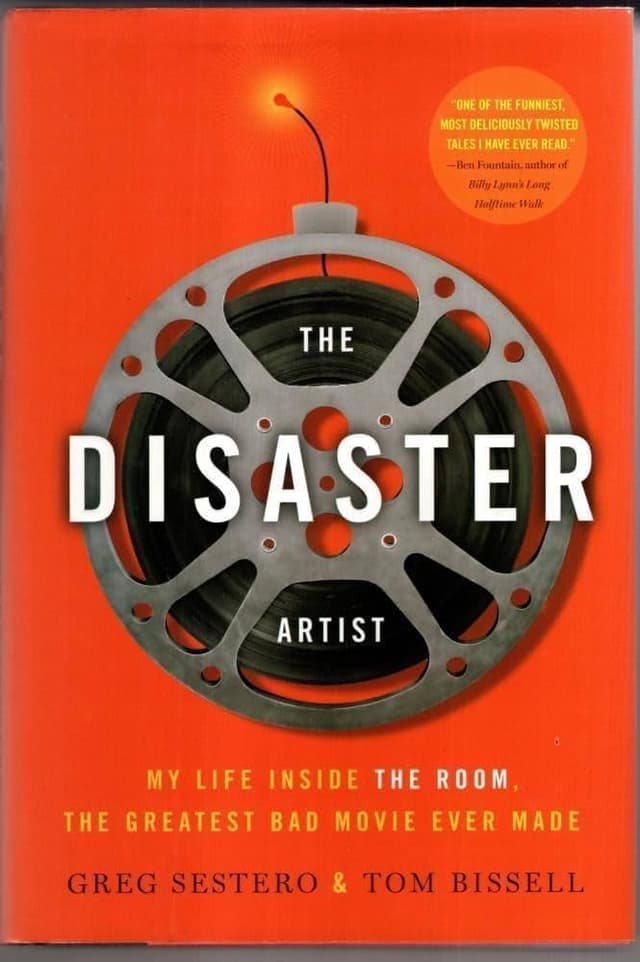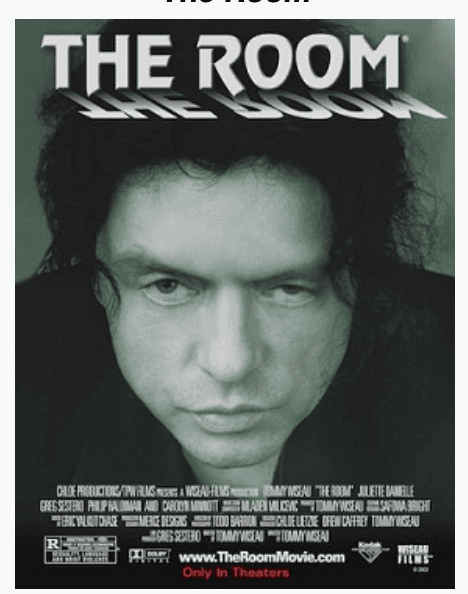The Disaster Artist vs. Sapiens: A Brief History of Humankind by Yuval Noah Harari
The Disaster Artist
The best book about the best director in the world. It was such a great book it was adapted into a movie. Bet the other books on this list can't say that!
Sapiens: A Brief History of Humankind by Yuval Noah Harari
The great thing about this book is that it takes a big-picture view of human history. It attempts to explain the main themes of human history without getting bogged down in the details. Sapiens also debunks many popular myths about human history, including the one that people today live happier lives and have better diets than our hunter-gatherer predecessors. It comes with an epilogue about the future of humankind in light of ever-accelerating technological progress. With the recent advances in AI it is more relevant than ever. If you're going to read one book on history this year, read this one.

Reviews
Reviews
| Item | Votes | Upvote |
|---|---|---|
| Entertaining | 1 | |
| Easy read | 1 | |
| Learn about Tommy Wiseau - the greatest movie director | 1 |
| Item | Votes | Upvote |
|---|---|---|
| No cons yet, would you like to add one? | ||
| Item | Votes | Upvote |
|---|---|---|
| No pros yet, would you like to add one? | ||
| Item | Votes | Upvote |
|---|---|---|
| No cons yet, would you like to add one? | ||
Frequently Asked Questions
'The Disaster Artist' and 'Sapiens: A Brief History of Humankind' serve very different purposes and appeal to different audiences. 'The Disaster Artist' is an entertaining read that offers insights into the making of a cult film and the eccentric personality of Tommy Wiseau. It has been praised for being an easy and enjoyable read. On the other hand, 'Sapiens' provides a comprehensive overview of human history, debunking popular myths and offering a big-picture perspective. It is more educational and thought-provoking, especially relevant in the context of technological advancements. Your preference will depend on whether you are looking for entertainment or a deep dive into human history.
'The Disaster Artist' is generally considered more entertaining due to its humorous and engaging narrative about the making of a cult movie and the eccentricities of its director, Tommy Wiseau. 'Sapiens,' while highly informative and thought-provoking, is more academic and focuses on the broad scope of human history, which may not be as light-hearted or entertaining for some readers.
'Sapiens: A Brief History of Humankind' provides more educational value as it covers the vast expanse of human history, debunking myths and offering insights into the evolution and progress of humankind. It also includes discussions on the future of humanity in light of technological advances. 'The Disaster Artist,' while insightful about the film industry and the making of a cult classic, is primarily an entertaining read and does not aim to educate on broad historical or scientific topics.
'The Disaster Artist' is a book that delves into the making of the cult classic film 'The Room,' directed by Tommy Wiseau. It provides an inside look at the film's production and offers insights into Wiseau's enigmatic personality.
Pros of 'The Disaster Artist' include its entertaining narrative, easy readability, and the opportunity to learn about Tommy Wiseau, who is considered by some as one of the greatest movie directors. No cons have been listed by users at this time.
'The Disaster Artist' was adapted into a movie due to its compelling story and the cult status of 'The Room.' The book's popularity and its detailed account of the film's production made it a strong candidate for a cinematic adaptation.
'Sapiens: A Brief History of Humankind' by Yuval Noah Harari takes a big-picture view of human history. It explains the main themes of human evolution and development without getting bogged down in details. The book also debunks many popular myths about human history, such as the idea that people today live happier lives or have better diets than our hunter-gatherer predecessors. It ends with an epilogue discussing the future of humankind in light of accelerating technological progress, making it particularly relevant given recent advances in AI.
'Sapiens: A Brief History of Humankind' discusses several main themes, including the cognitive revolution, the agricultural revolution, the unification of humankind, and the scientific revolution. The book explores how these events have shaped human societies, cultures, and economies. It also delves into the impact of technological advancements on the future of humanity.
Yuval Noah Harari is an Israeli historian and professor in the Department of History at the Hebrew University of Jerusalem. He is known for his bestselling books 'Sapiens: A Brief History of Humankind', 'Homo Deus: A Brief History of Tomorrow', and '21 Lessons for the 21st Century'. Harari's work focuses on broad historical processes and their implications for the future.
Pros of 'Sapiens: A Brief History of Humankind' include its broad, comprehensive view of human history and its ability to debunk popular myths. The book is also praised for its engaging writing style and thought-provoking insights. Cons might include its broad scope, which can sometimes lead to oversimplification of complex historical events, and the fact that some readers may find its speculative future predictions less convincing.




















